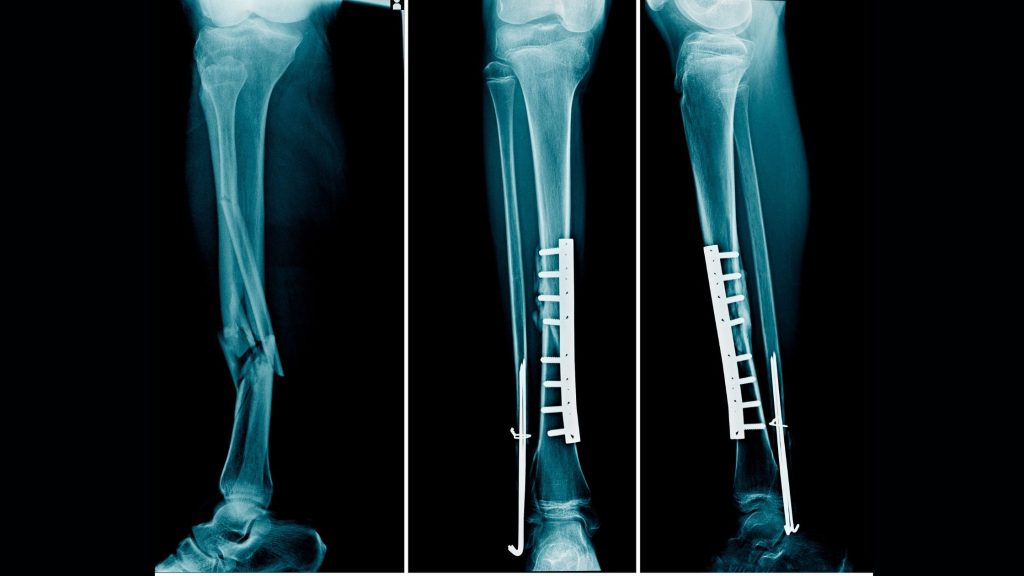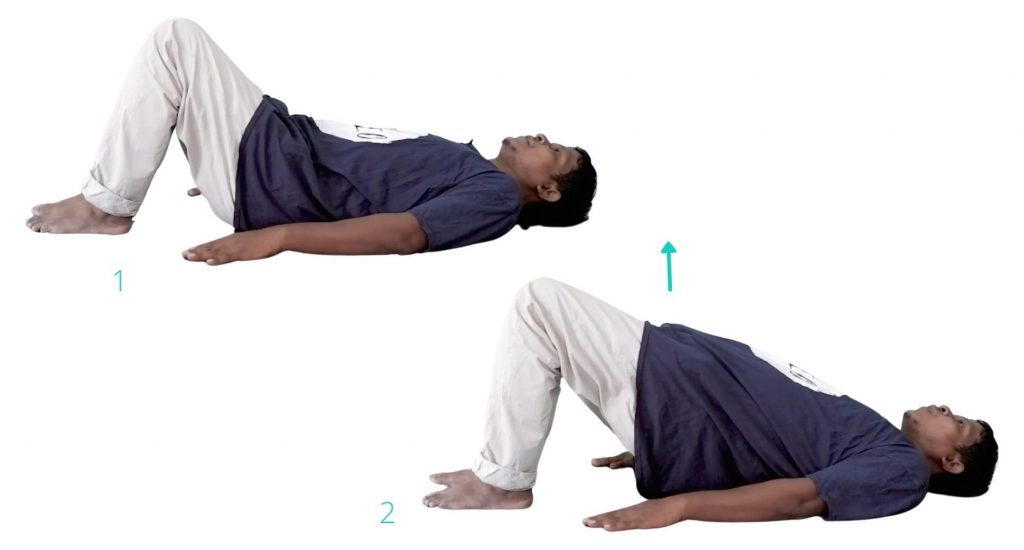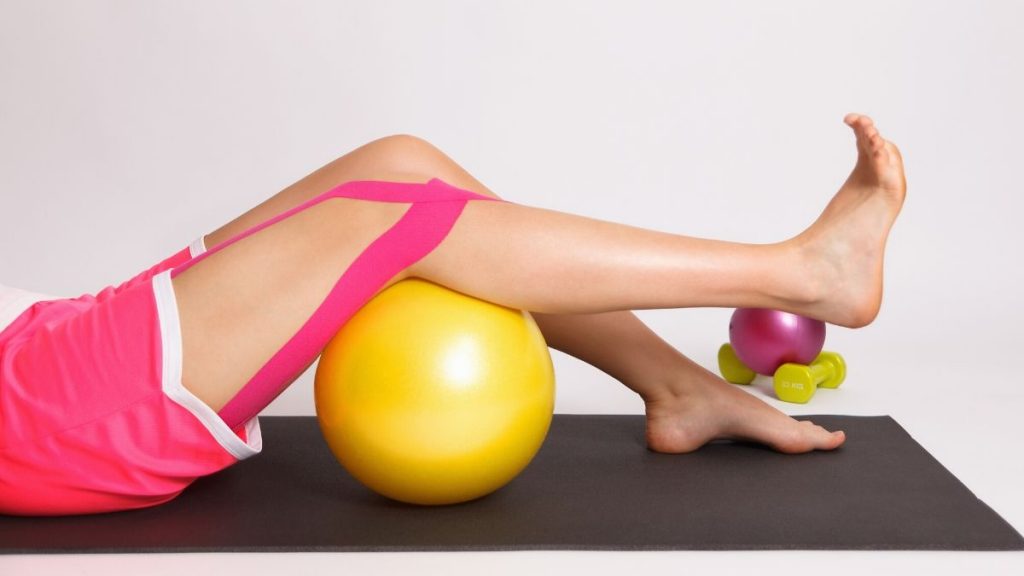Last updated on May 3rd, 2025 at 08:59 am
A strong skeletal system is crucial for overall musculoskeletal health, regardless of age. As a physiotherapist, I have witnessed the negative impact of weak bones in my clinic. Even minor accidents, such as slipping on a wet floor, can result in a fractured bone.
The good news is that we have the power to fortify our bones through our dietary choices. In this article, I will outline dietary recommendations and meal plans to help you strengthen your bones.
Key Nutrients for Bone Health
1) Calcium-Rich Diet for Strong Bones
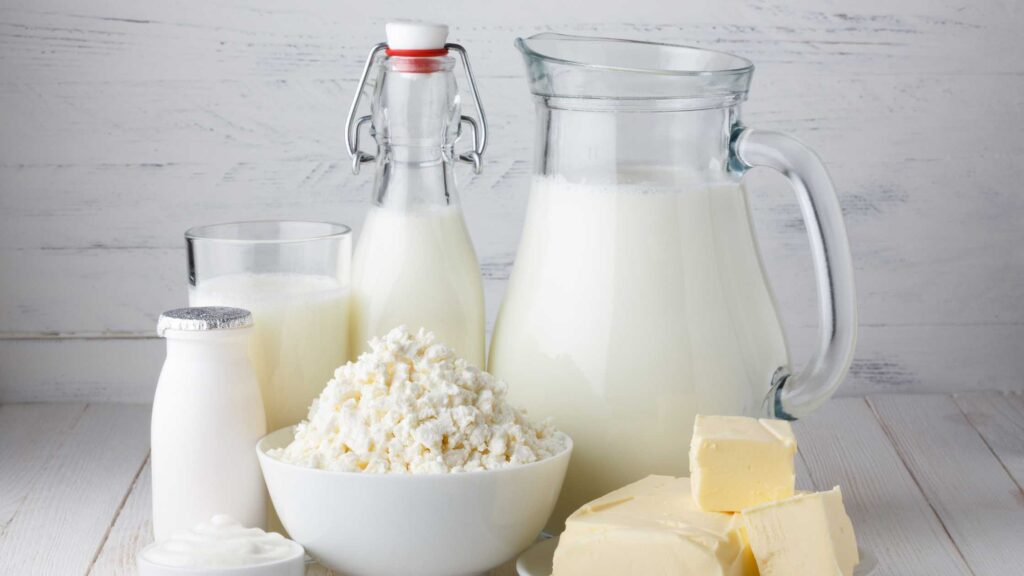
Calcium is vital for bone health as our bones are primarily composed of this essential mineral. Since our bodies do not produce these nutrients, we must obtain all our calcium needs from our diet1. Dairy products, such as milk, are excellent sources of calcium.
Regular consumption of milk can significantly contribute to strengthening your bones. Additionally, dairy products like curd, butter, yogurt, and cheese are rich in calcium and can be included in your diet. Elderly individuals who struggle to digest milk can opt for curd instead.
2) Soy Products
Soybeans and soy products are great sources of calcium and protein. If you’re looking to add more calcium to your diet, soybeans and soya chunks are excellent options. Soya chunks are versatile and can be added to various dishes such as stir-fries, curries, and salads.
Soymilk is also a fantastic alternative to dairy milk and can be used in coffee, smoothies or enjoyed on its own. Incorporating these soy-based foods into your diet can help diversify your calcium sources and provide additional nutritional benefits.
3) Eggs
The egg yolk is a great source of calcium and vitamin D. Additionally, egg yolks contain phosphorus, which works with calcium to build and maintain strong bones and teeth.
Including egg yolks in your diet can be a convenient and delicious way to ensure you’re getting these important nutrients for bone health.
4) Cereals
In addition to being a good source of calcium, many cereals are also fortified with other essential vitamins and minerals, making them a convenient and nutritious choice for breakfast. It’s important to check the nutrition labels to ensure that your cereal contains a substantial amount of calcium and is low in added sugars.
Pairing cereal with milk can further boost its calcium content, providing even more benefits for bone health.
5) Nuts
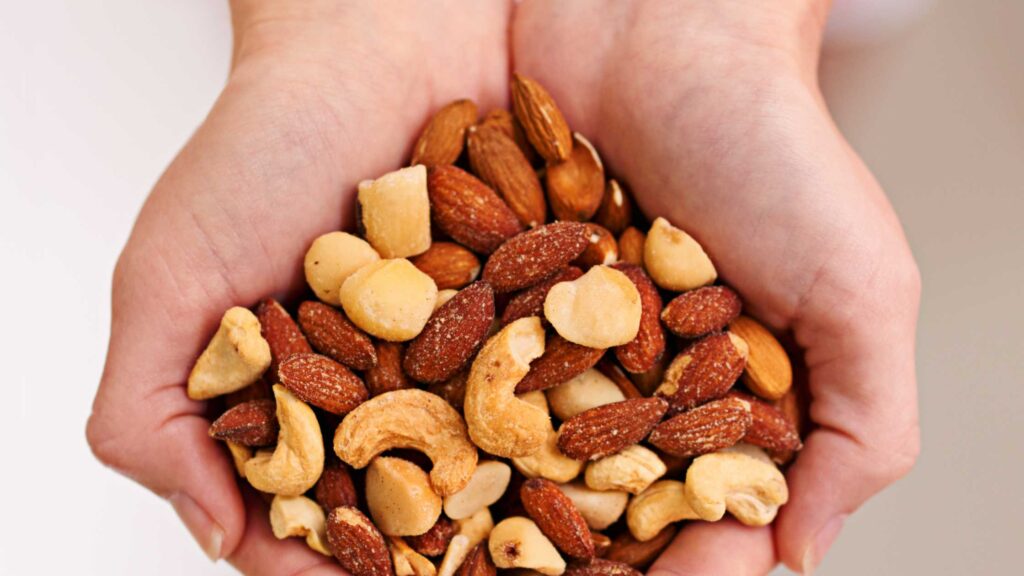
Magnesium is crucial for bone health as it helps with the absorption and metabolism of calcium2. Nuts such as cashews, pistachios, and almonds are excellent sources of magnesium, making them a convenient and tasty addition to your daily diet.
Incorporating these nuts into your meals or snacks can help you maintain adequate magnesium levels, supporting your bones’ overall health and well-being. Remember to enjoy nuts in moderation as part of a balanced diet to maximize their benefits.
6) Vitamin D
Vitamin D acts like a hormone that helps enhance calcium absorption. in our body. Vitamin D strengthens our bones indirectly by enhancing calcium absorption in our small intestine.
While some foods contain small amounts of vitamin D, humans synthesize it through sunlight exposure. When ultraviolet B (UVB) rays from sunlight penetrate the skin, they trigger the production of vitamin D3 (cholecalciferol), the most active form of vitamin D in the body3.
Example meal plans for bone health
I am sharing an example of an Indian meal plan that includes sufficient calcium and other minerals for strong bones.
Breakfast: For breakfast, you can have a masala omelette with spinach and tomato, which is tasty and hearty and ensures your body gets enough calcium. Eat roti along with it to get fibre and protein, creating a complete meal.
Lunch: For lunch, add fenugreek leaves to the dal you are making, which is a good source of calcium. Adding drumsticks (moringa) to the dal also helps fulfil your daily calcium requirement.
Dinner: For dinner, include broccoli or cauliflower curry. If you eat non-vegetarian food, include chicken, which is a good source of calcium.
Snacks: For evening snacks, add cashews, pistachios, and almonds to curd with a bit of sugar. This makes a tasty treat that provides a good source of calcium. Another great snack is roasted chana and roasted peanuts, rich in magnesium.
Conclusion
Incorporate these foods into your diet and it will surely help you get your bones stronger. However, getting enough calcium and vitamin D from our diet can be challenging due to our food habits. You may also consider taking calcium supplements and supplements for vitamin D to make sure you are consuming sufficient amounts of these nutrients.
In addition to these, we also recommend adding exercises to your daily routine which is beneficial for the overall health of our musculoskeletal system. Especially probiotics in your diet are very effective for strong muscles..
Keep Reading: Supplement That Reduces Osteoporosis Risk Later in Life
The author is a physiotherapist who has been practising for the last 17 years. He holds a Bachelor's in Physiotherapy (BPT) from SVNIRTAR (Swami Vivekananda National Institute of Rehabilitation and Research), one of the prestigious physiotherapy schools in India.
Whatever he learns dealing with his patient, he shares it with the world through blogs and e-books. He also owns a YouTube channel, "Sunit Physiotherapist" with over 8 lakh active subscribers. Here, he shares everything he gets to learn serving the patient.
